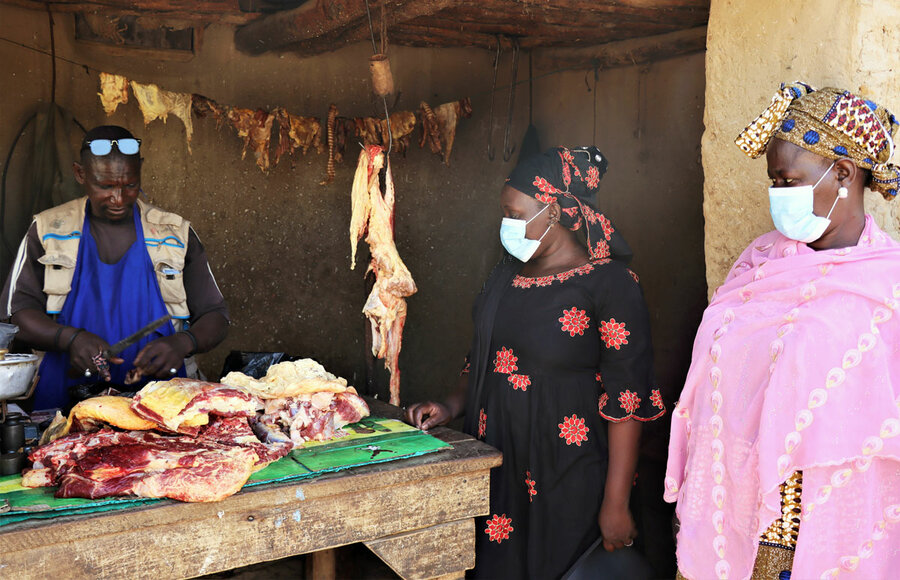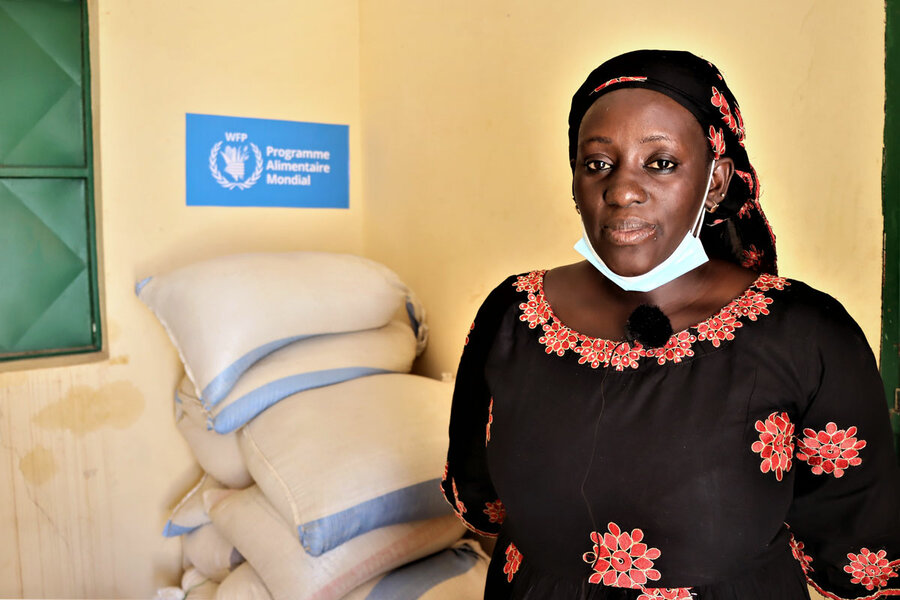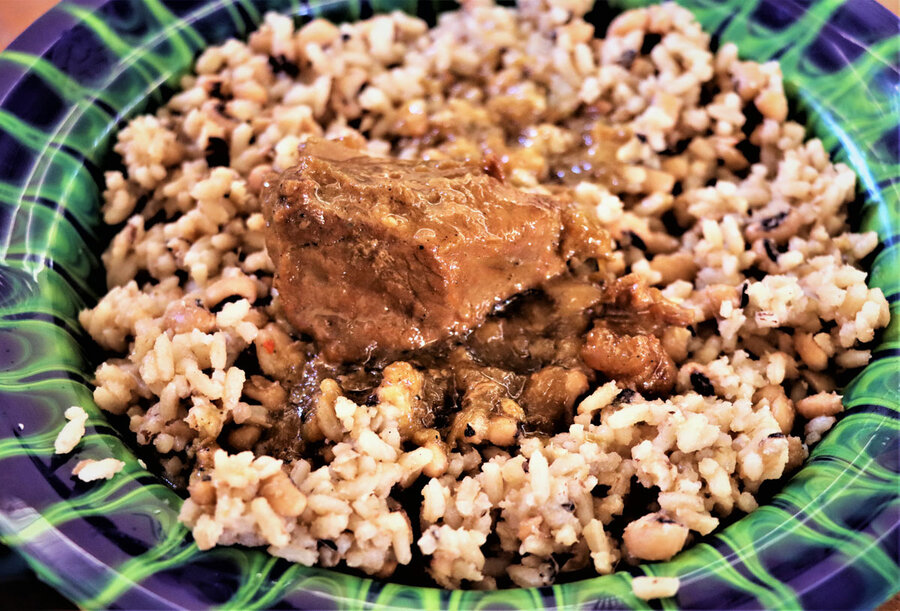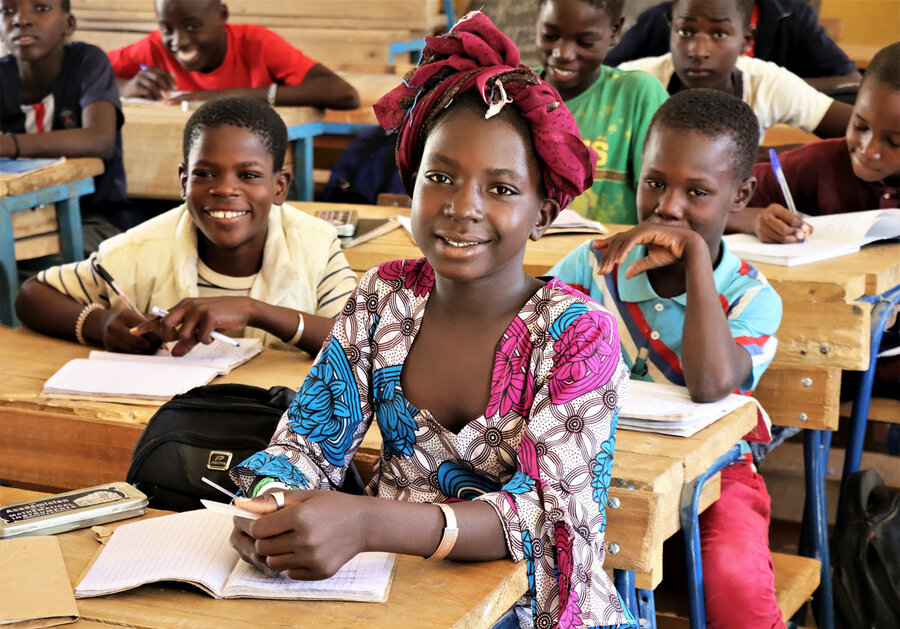WFP school meals in Mali are a boost for children and the local economy

This article marks the International Day of Education (24 January) which recognizes that 258 million children and youth still do not attend school... and celebrates learning heroes
Each morning you can find Assoura Mahamadou hard at work at his butcher’s shop on the outskirts of Mali’s historic city of Timbuktu. For more than three decades, locals have flocked to the Kabara neighbourhood to buy fresh mutton, on display within Mahamadou’s thatched roof shed. One of his many loyal clients is Mariam Traoré, a member of the Kabara primary school’s management committee.

“I visit Mahamadou daily to buy quality meat because it’s good for our children’s wellbeing,” says Mariam, whose own two children benefit from school feeding at the primary school. “I know most of the students. They’re like my own children, my brothers’ and sisters’.”
Many parents are grateful that the school takes care of their children’s food and nutritional needs by providing quality meals, including mutton. School meals translate into fewer expenditures for the most vulnerable households; those who can only afford to feed their children a single meal a day. And since the food is produced locally, it reflects local customs and helps give back to the community.

Kabara’s students are not the only ones enjoying the nourishing meals. Thanks to the World Food Programme (WFP) and its partners, more than 114,000 students in 656 primary schools in Mali receive daily school meals in some of the regions hit hardest by food and nutrition insecurity.
Wherever markets operate, WFP supplies cash to school management committees to procure rice, vegetables and meat or fish from local merchants.
This approach not only helps improve school performance and students’ health, but also boosts local food production and the area’s economy.
During a time when Mali faces a multi-dimensional crisis linked to insecurity, climate change and the fallout of COVID-19, efforts that reinvest in 'human capital' are vital to ensure future generations can fully realize their potential.

“My income's increased thanks to school feeding,” says Mahamadou. He is the main meat supplier in Kabara and supplies each primary school with 10kg of mutton per day.
The prosperity he feels is reflected in the community; 11-year-old Mariam Daouna, one of the local students, is optimistic about her future.
“When I grow up, I want to become a doctor,” she says as she heads to the dining hall for her daily meal. “It makes me sad to see sick people around me and I want to make them feel better.”
Mali’s school feeding programme is possible thanks to financial support from the European Union, Germany, Norway, Italy, Luxembourg and Mastercard.
